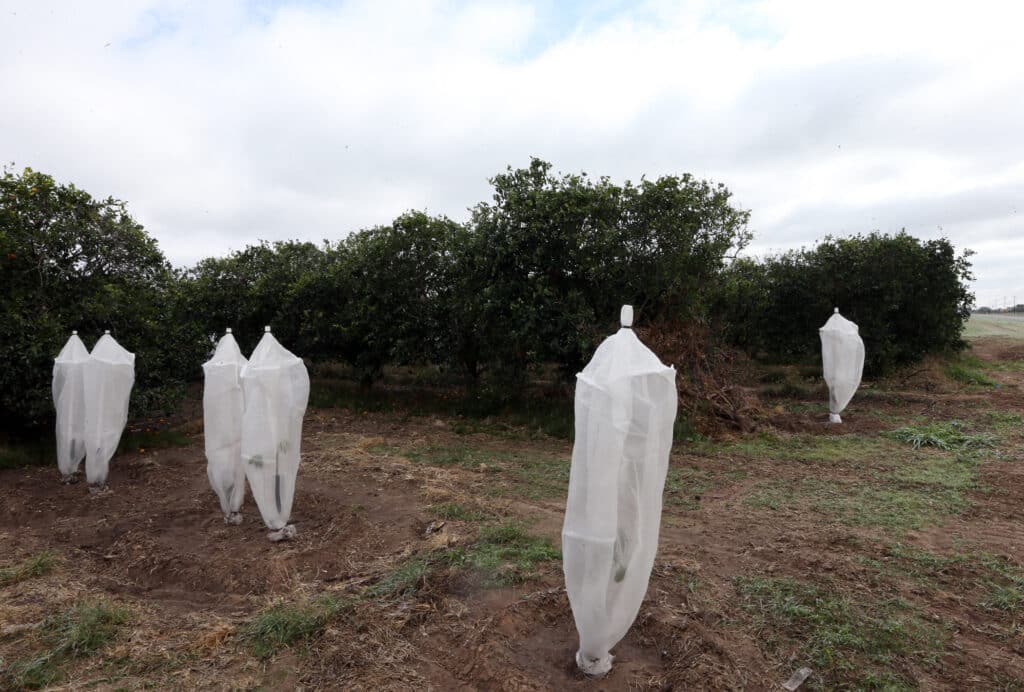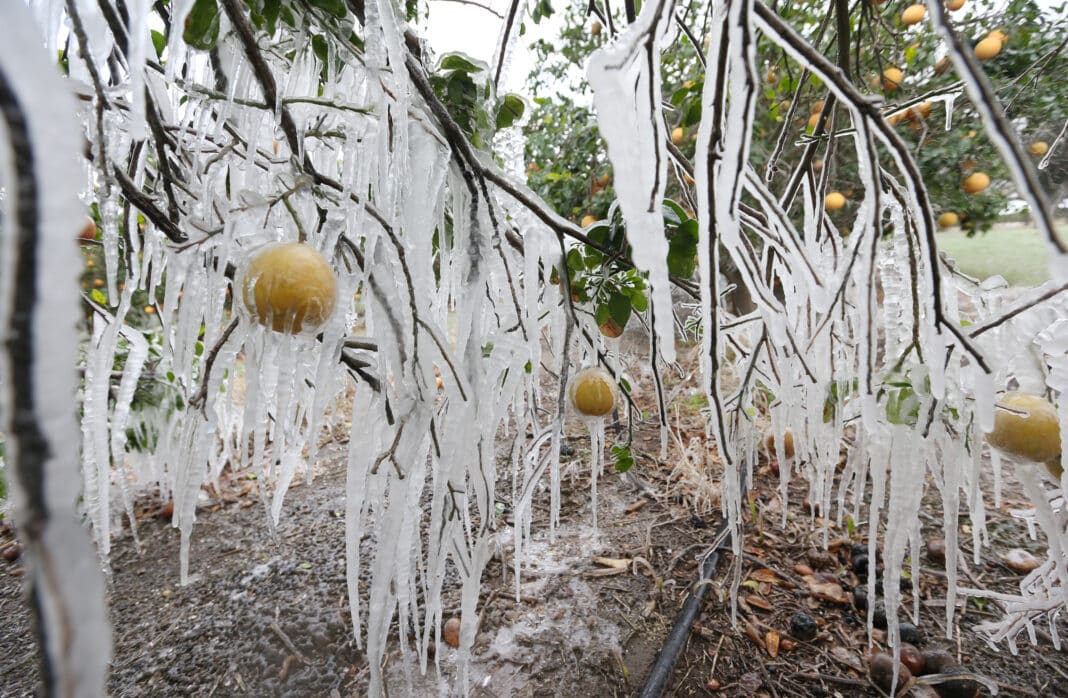Service delays, power outages and road closures were just the tip of the iceberg Monday as the freeze brought with it record cold temperatures dipping as low as 21 degrees, while clear skies made Rio Grande Valley farmers weary of the sun melting the ice on their citrus, which would create burn.
As life-threatening weather conditions moved through the state, energy conservation became a great concern for the Electric Reliability Council of Texas, or ERCOT. After an unsuccessful call for the conservation of energy, ERCOT pulled the plug to shed thousands of megawatts from their load but plunged nearly 131,000 Rio Grande Valley residents into electricity-deprived homes via controlled outages.
“AEP Texas continues to work with ERCOT to address the situation; however, it is too early to project when the situation will ease and the number of outages will begin to decrease. Customers should be prepared to remain without power for at least the rest of the day,” a news release read.
Extreme temperatures forced some into local shelters.
About 20 people found warmth, food, and safety at the Salvation Army in McAllen. A family of three moved in after freezing water poured into their La Joya home through their Hurricane Hanna-damaged roof. They joined about 45 other residents who normally congregate.
Demand for shelter remained low at the Salvation Army where the overflow capacity stands at 50, down from 120 during pre-COVID times.

An employee from the Salvation Army walks the banquet room on Monday, Feb. 15, 2021, in McAllen.
The city of Mission reported only five sought shelter at its location. Three used the city of Mercedes Dome opened since Friday, and only a few more went to the Catholic Charities of the Rio Grande Valley Respite Center in McAllen.
Icy conditions delayed vaccination events and city services like garbage disposal, but the full weight of its effect is yet to trickle down into the Valley’s economic landscape.
Picturesque icicles sprawling from grapefruit groves and fields dusted with ice shavings painted a grim picture for citrus and vegetable growers who are now expecting millions of dollars lost on crops caught in the middle of harvest season.
“It’s just a bad time with 60% of your existing crop on the tree — that’ll be lost,” Dale Murden, Texas Citrus Mutual president, said. “And, arguably, we had next year’s crop starting to form on the tree. So, next year’s crop will be lighter.”
Murden said the commercial citrus in the Valley represents a $468 million commodity in Texas.
“So, if we’re going to lose 60% of the crop, that’s several hundred million loss, arguably,” he added.
Vegetable growers like Little Bear Produce, formerly J&D Produce, are also assessing their losses.
“Our estimation is that everything, knowing that we have about 50% of our vegetable crop to go, we probably lost close to everything that was left,” Bret Erickson, senior vice president of business affairs, said.
The company uses 6,000 acres to farm, pack and ship over 35 different kinds of vegetables like cabbage, celery, chards, kales, and herbs like cilantro and dill. They also plant melons and sweet onions, which they hope will have a fighting chance.
It may be a week or two before the frozen citrus crop falls giving growers a better loss estimate, Murden said.

Plastic bags cover a water system used to protect the citrus groves Monday, Feb. 15, 2021, in Edinburg.
Consumers may notice fewer Texas-grown vegetables or citrus on their shelves in the coming weeks and may pay the price for goods brought from further away. Greater impacts will be felt on the dinner table of thousands of people who depend on the work in the fields to provide for their families.
“The Texas fruit and vegetable industry employs about 30,000 farmworkers,” Dante Galeazzi, president of the Texas International Produce Association, said. “Those 30,000 farmworkers could be without some form of work over the next month or so depending on the impact to the Valley crops.”
Locally, Murden estimates there are 3,000 to 4,000 people who rely on working those fields.
Growers like Erickson are keeping an eye on the second freeze expected to last longer Tuesday night but also on those they hope will outlast the effects of a dry harvest season.
“Companies like ours and other companies won’t have the work available for them for some time,” Erickson said. “Mother Nature gives and she can take just as quickly. This is part of the business.”





